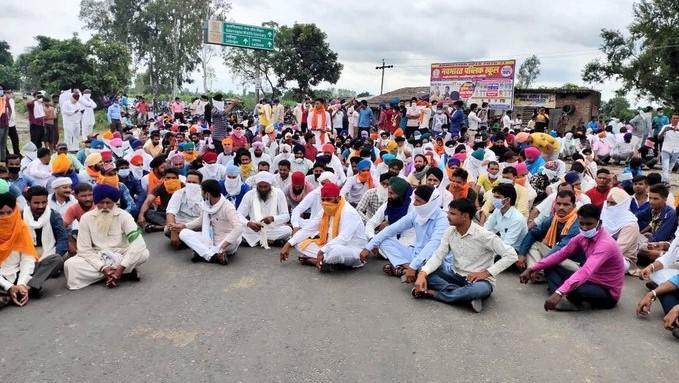Why India Must Rekindle Debate on Public Sector

The ongoing debate on new agriculture policies and farmer’s protests over them has brought some much-needed focus on the farming sector. However, there is another implicit debate, that of the public sector versus the private sector, which needs immediate attention too. This conundrum, in fact, is at the heart of the current protests against the farm bills as well.
Indian farmers have demonstrated great clarity, in spite of repeated appeals by Prime Minister Narendra Modi, that private players in agriculture will be detrimental to their interests and exploit their vulnerabilities. Though they are not oblivious to the problems with state agencies such as the agri-pricing committees, the Food Corporation of India or the Public Distribution System, yet their experience tells them very clearly that these are better than private actors.
It is within the middle classes and urban professionals, who play an important role in shaping public opinion and influencing policy, that the debate between the public versus the private is far from settled. The myth of private-sector efficiency continues to hold ground among these sections, even though the romance with privatisation has ended thanks to the serious doubts raised by India’s three decades of neo-liberal reforms. We need to rekindle this debate in order to halt the growing corporatisation of the economy and society.
The myth of the private sector is very strong in education. It is now a settled idea that government schools, by and large, fail not only because of poor funding, meagre infrastructure and wanton neglect but also because of the poor work ethic, dishonesty and lack of commitment of teachers to imparting a quality education. School teachers are now known all over India for bunking classes, poor know-how and utter lack of interest and commitment, apart from other reasons such as growing pressure for English education in primary schools from all social groups, including Dalit-Bahujans. Today, English education is equated with private schooling. Only recently did the Jagan Mohan Reddy government in Andhra Pradesh give a policy direction that all government schools will be converted to English medium. (Though it needs to be seen how effectively this is realised and particularly how the state mobilises the personnel required to teach in English.)
The middle classes, as a group, send their children to private schools. It can be agreed that they have delivered well, even if issues such as high fees and not implementing the Economically Weaker Section quota remain. It could also be argued that it is only a small section of higher-end private schools that offer quality education, while many, even in urban areas, offer sub-standard education. But since many of them teach in English, parents prefer them over government schools even in peri-urban and rural areas.
The debate is wide open with regards to the health sector. Corporate hospitals are known neither for efficiency nor for moderate pricing. They not only charge exorbitant prices but are staffed with many doctors who have received mediocre training in private medical colleges that have unsatisfactory teaching faculty and even worse infrastructure. By comparison, government-run medical colleges and hospitals enjoy a better reputation, even if they are starved of funds, and face pressures beyond their capacity to bear. It is to the credit of doctors in public hospitals that people continue to trust the healthcare system at all, even if they also cannot afford corporate-run private hospital treatments.
Hospitals such as the All-India Institute of Medical Sciences (AIIMS) in Delhi enjoy a high reputation due to its capacity to carry out advanced treatment, while private hospitals do not inspire trust and are often suspected of prescribing unnecessary medication and unwarranted procedures so as to charge exorbitant bills. There need to be more studies and public awareness about how doctors in government-run hospitals still enjoy the trust of people. How have they managed an efficient work ethic considering the otherwise non-committal attitude demonstrated by public servants? Despite poor infrastructure, even the middle classes, given an opportunity, and if they have the right connections, prefer to get treated in government-run hospitals and do not easily trust corporate hospitals.
The situation in India in terms of public opinion is wide open. It is now dawning on many that private players do not necessarily mean efficiency and quality. Not only hospitals, most private universities are deficient in teaching and create a mass of unemployable pass-outs compared to many public universities that are still high-ranking, including the IITs, IIMs, JNU and University of Delhi, to name just a few. However, the inefficiency and poor infrastructure in the public sector often leaves many with little choice. There is an urgent need to reiterate the significance of public sector in India, but we need to raise tough questions about missing efficiency, lack of work ethic and commitment, apart from poor funding and infrastructure.
It is true that there was large-scale pilferage from the PDS and welfare schemes such as MG-NREGA. The current government is making unethical use of these limitations not to improve but dismantle the public sector altogether. Corruption, pilferage and patronage networks were being used to dismantle welfare policies and the public sector, but the private sector has failed to gain public trust and the initial myth about the efficiency and quality about private sector today is not on a strong wicket.
Private players mushroom under the same system of patronage and crony capitalism. The state continues to play an important role in aiding the private sector and sabotaging even the efficient institutions in the public sector. Recent examples of destroying public universities such as Delhi University and JNU in India are a glaring example, even if it was for ideological reasons as much as to benefit the corporate.
People today are caught between complaints of inefficiency of the public sector and cheating and profiteering of the private sector. They are caught between the devil and deep blue sea. It is for this reason that initiatives and mobilisations in favour of public education do not really take off. Apart from issues of funding we need to raise issues of work ethic and ethics of public commitment to revamp the public sector. We do not have clarity about the reasons behind such poor work ethic in education and the somewhat overwhelming public sense in government hospitals. What can possibly explain this contrast? It is in finding answers to these questions that public mobilisation in favour of strengthening the public sector will depend.
The author is associate professor, CPS, JNU. His forthcoming book is titled Emotive Majority: Ethics and Emotions in New India. The views are personal.
Get the latest reports & analysis with people's perspective on Protests, movements & deep analytical videos, discussions of the current affairs in your Telegram app. Subscribe to NewsClick's Telegram channel & get Real-Time updates on stories, as they get published on our website.
























